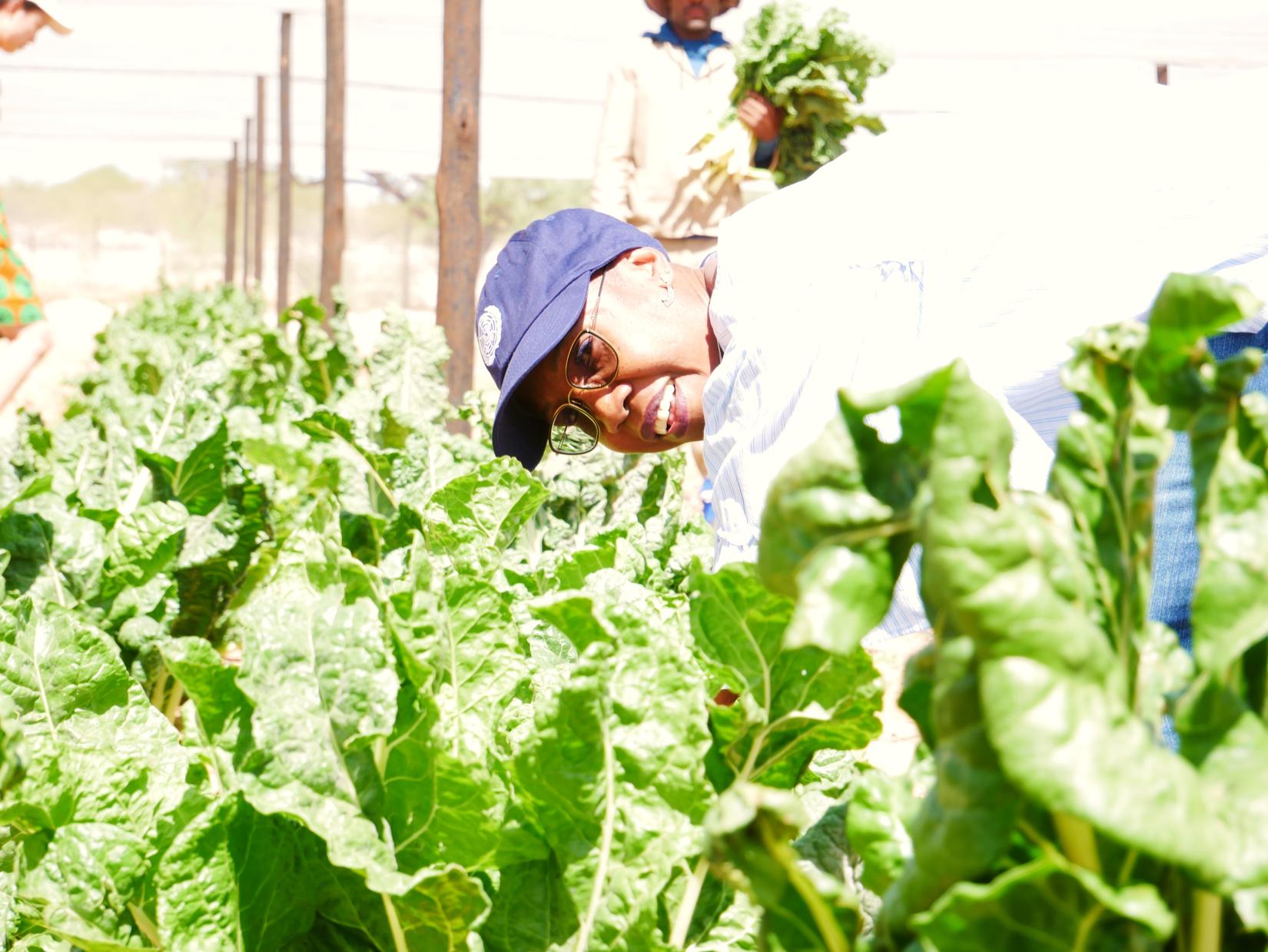UN Namibia Resident Coordinator: Praises Resilience Amid Challenges During Recent Visit to Government Projects supported by WFP, in Southern Namibia
It is all about building bridges in the context of the UN Delivering as One!
Windhoek, Namibia – Ms. Hopolang Phororo, the United Nations (UN) Resident Coordinator (RC), and Ms. Ericah Shafudah, World Food Programme (WFP) Deputy Country Director in Namibia, recently visited food systems projects in southern Namibia to gain valuable insights on the various WFP-implemented projects.
During the visit, Ms. Phororo paid a courtesy call on Hon Governor Aletha Fredericks of the //Kharas Region and Hon Councillor Jeremias Goeiemann (MP) of the Berseba Constituency, to understand contextual challenges experienced and appreciate opportunities for strengthening collaboration in the region. The visit highlighted the success of the Berseba Integrated Food Systems Project, supported by WFP, which has improved diets and enriched the community of Berseba with a consistent supply of eggs and vegetables, despite extreme heat and erratic rainfall.
In Hardap Region, Ms Phororo engaged the Hardap Governor. Rev Salomon April and officials from the Ministries of Education, Arts and Culture, Ministry of Health and Social Services and Ministry of Agriculture, Water and Land Reform. Ms. Phororo emphasized the importance of unity and collaboration in addressing issues pertaining to youth unemployment, access to education, quality health, data, and statistics gaps, as well as opportunities in agriculture. Ms Phororo also highlighted the potential of joint UN area-based programming to contribute to the attainment of national development goals and the UN Sustainable Development Goals by 2030.
Ms Phororo visited government projects supported by WFPs in the Region - the Stampriet Primary School-Based Food Systems Project and the Hardap Correctional Facility Food Systems Project. The Stampriet Food Systems model has established a chicken coop and a horticultural vegetable garden aimed to diversify learners' diets, improve concentration in class, retention of children in school as well as contributing to their health outcomes. The surplus from the garden is sold to the market for income generation.

The Hardap Correctional Facility's food systems project is a multifaceted collaboration that has had a significant impact on the nutritional intake of over 300 vulnerable communities and offenders. Additionally, it equips inmates with valuable skills in horticulture as well as regenerative and climate-smart agriculture, which are invaluable as they are rehabilitated for reintegration into society. Through this project, offenders gain knowledge and experience in sustainable farming practices, fostering self-sufficiency and contributing to their rehabilitation process.
Ms Phororo in sharing her field experience highlighted, “Projects such as these provide a strong foundation on which other agencies can build to address not only food insecurity but also other issues that the communities are grappling with, such as youth unemployment.”
Ms. Phororo emphasized the potential of joint UN area-based programming to advance national development goals, which will be implemented under the Sustainable Development Cooperation Framework that is currently being formulated.
# # #
About UN Namibia
The United Nations (UN) in Namibia comprises 11 resident and non-resident agencies, funds, and programs, collaborating to support sustainable development in the country.
For more information, please contact.






